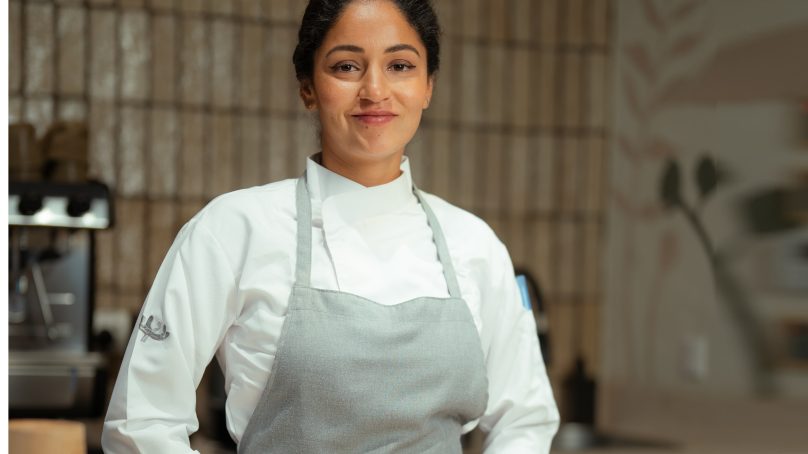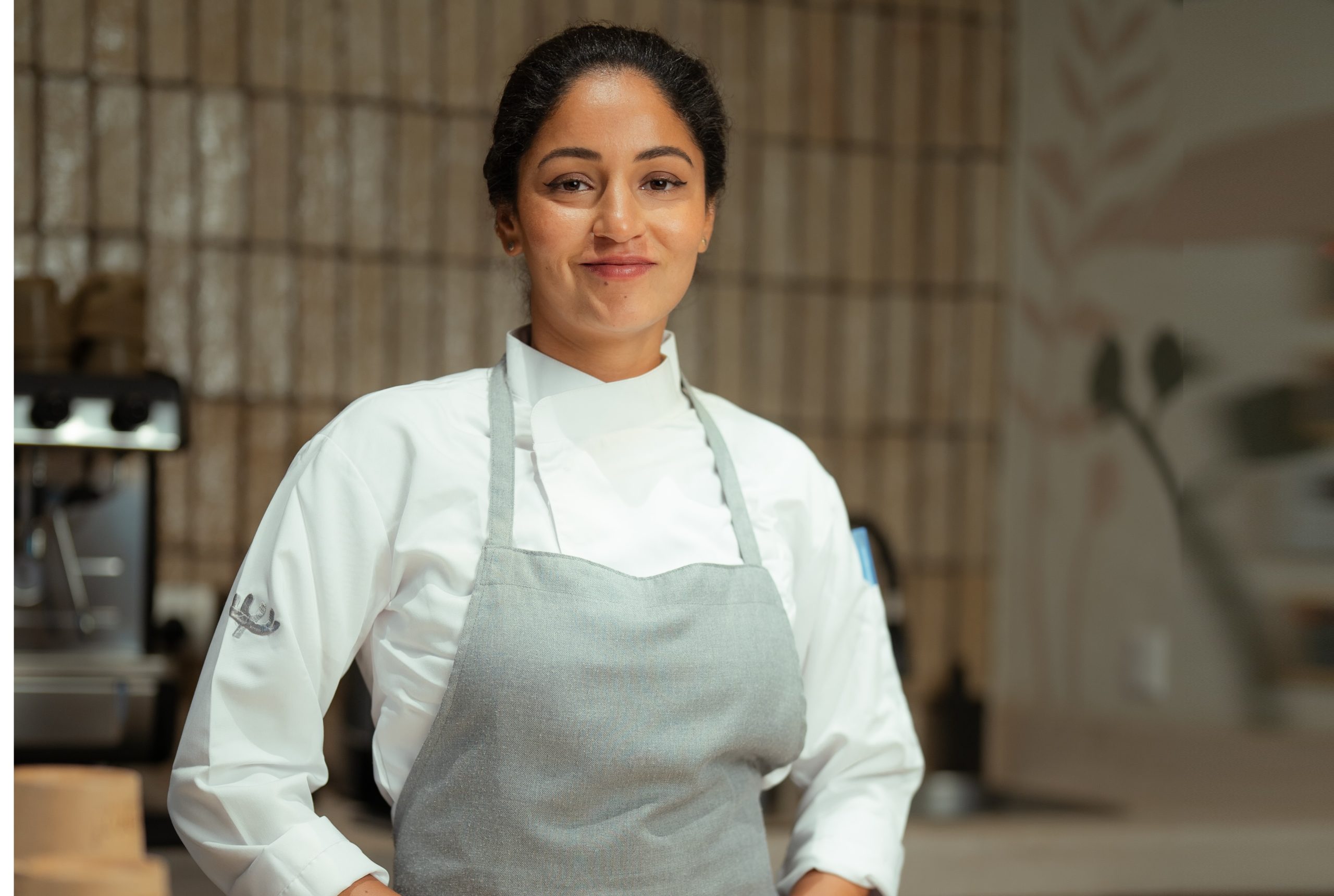Saudi female chef and founder of Nabati Ice Cream, Ola Kayal is passionate about plant-based desserts and ice cream. Through Nabati, she’s creating desserts with a purpose and plans to expand her concept even further. We learn more about her brand and upcoming projects in this exclusive interview.
What inspired you to start a plant-based dessert and ice cream café?
Since I was a little girl, I’ve always been passionate about baking and experimenting with desserts that spark joy. Moreover, I love creating amazing desserts that bring people together, encouraging connection, celebration and shared moments around something sweet and satisfying. When I attended business school, my graduation thesis focused on a sustainable restaurant, a concept deeply rooted in environmental awareness. Later, while pursuing my culinary bachelor’s degree, my final product was a plant-based ice cream inspired by the same sustainable theme.
Additionally, my business plan for that project revolved around launching a sustainable restaurant that redefined conscious dining for modern eaters. During culinary school, I invested significant time studying food sourcing and its environmental impact, which deeply shaped my understanding. As a result, I discovered unsettling truths about the animal agriculture industry that drastically shifted my perspective on traditional food practices. Consequently, I felt driven to create food that makes people feel vibrant, nourished, and full of life, not sick or sluggish. Naturally, I became committed to crafting indulgent ice cream and desserts that are entirely guilt-free yet equally satisfying and full of flavor. Eventually, I launched a plant-based ice cream and dessert shop in Miami, setting the stage for a larger vision to grow. Subsequently, I expanded into a conscious eatery in Jeddah, feeling there was a meaningful gap for that in the local market.
What were the biggest challenges in perfecting plant-based ice cream and desserts?
Admittedly, making plant-based ice cream without prioritizing health or nutrients is easy when flavor is the only goal you pursue. However, once you commit to crafting something both delicious and nutrient-dense without shortcuts or additives, the real challenge truly begins. Furthermore, using wholesome sugars like dates, unrefined maple syrup, and coconut sugar dramatically shifts the chemistry and behavior of the recipe. In addition, choosing to avoid stabilizers, gums, starches, and emulsifiers introduces even more complexity into the already delicate formulation process.
Naturally, there was a long journey of trial and error, reshaping many long-held industry standards in ice cream production. For instance, all dipping cabinets come with preprogrammed temperature settings that aren’t suitable for storing 100 percent natural ice cream properly.
Therefore, truly natural ice cream must be stored at significantly higher temperatures to maintain its texture, flavor, and structural integrity. Undoubtedly, going against traditional industry standards has its cost, yet the reward lies in the integrity of each scoop we serve. Ultimately, breaking norms to redefine what ice cream can be requires persistence, creativity and a strong belief in conscious food innovation.
How do you ensure that your products maintain the texture and richness of traditional ice cream?
After a long process of trial and error, we discovered the key to natural ice cream lies in storage temperature. When selling ice cream by the pint, we advise customers to wait 15–20 minutes before they consume it. Indeed, we believe that good things in life are worth the wait, especially when it comes to real, natural ice cream. Moreover, when developing products that challenge industry norms, customer education quickly becomes an essential factor in achieving long-term success and loyalty.
What strategies helped you attract both plant-based and non-plant-based consumers?
Ultimately, food must taste delicious, whether it’s plant-based or not, because flavor is always the most important factor for enjoyment. Since I’ve worked extensively in fine-dining and high-end restaurants, I know flavor is essential in attracting and retaining customers. Moreover, fresh and delicious food is hard to resist, drawing people in naturally. And if that food happens to be nutrient-dense and healthy, then that’s a powerful and welcomed bonus. At Nabati, we proudly craft flavorful dishes designed for everyone even non-vegans because good food should always bring people together joyfully.
Do you see potential for expanding your concept into new markets?
I truly believe this represents the future of food, where health, sustainability and taste are no longer separate priorities or compromises. Today, many people struggle with dietary issues like high cholesterol, diabetes, colon problems and intolerances to common ingredients like gluten and dairy. Unfortunately, these issues often stem from how animal products are produced, using hormones and antibiotics to increase shelf life and profits. Moreover, this method prioritizes financial gain while completely disregarding the long-term impact it may have on human health and well-being. When profit becomes the driving force in food production, health is too often sacrificed and consumers are left to suffer silently.








